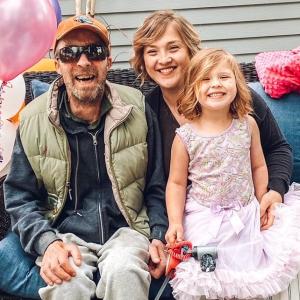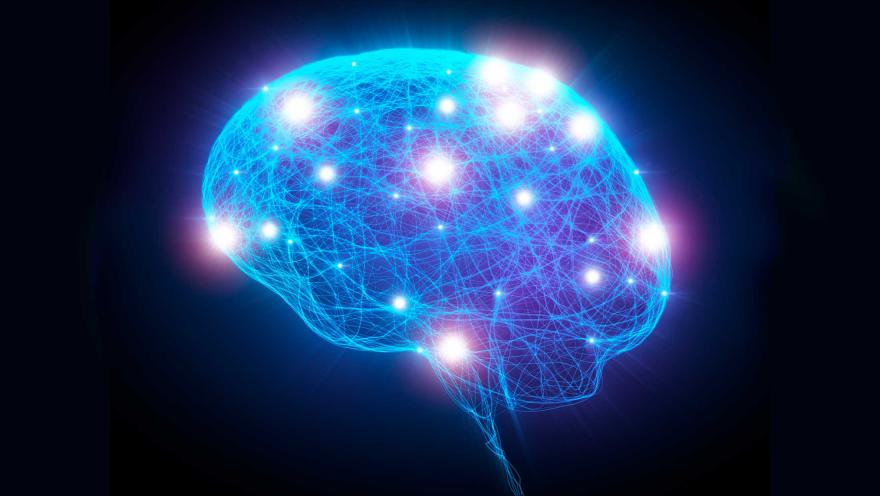An ALS diagnosis is a devastating diagnosis in and of itself, but to learn your loved one has FTD as well can make it even more challenging to comprehend.
Frontotemporal degeneration or frontotemporal dementia (FTD) refers to a group of disorders that causes progressive damage to the temporal and frontal lobes of the brain associated with personality, behavior and language. Loss of function in this area of the brain can lead to impulsive behavior and speech difficulties. Usually, FTD does not affect the parts of the nervous system that control muscle movement, but about 10-15% of people with FTD also experience motor neuron degeneration called FTD with motor neuron disease (FTD/MND) or FTD with ALS.
Doctors’ and scientists’ knowledge of the connection of these diseases has rapidly grown through genetic discovery, brain imaging studies and biomarker studies. Specifically, researchers were able to confirm the connection between FTD and ALS when the TAR DNA-binding protein 43 (TDP-43) was identified as the central protein in both ALS and the most common type of FTD. Additionally, up to 40% of FTD cases have been found to carry a C9orf72 gene mutation, which is most common in genetic causes of ALS.
In many cases, FTD symptoms are noted prior to the diagnosis of ALS. FTD symptoms may include:
- increase in inappropriate actions
- loss of empathy and other interpersonal skills
- lack of judgment and inhibition
- apathy
- repetitive compulsive behavior
- decline in personal hygiene
- changes in eating habits
- lack of awareness of thinking or behavioral problems
- difficulty in using and understanding written and spoken language
- loss of knowledge of word meaning
Terra Beilby was a caregiver for her father who was diagnosed with ALS with frontal lobe dementia in July of 2019. She recently shared her story with us and talked about what their experience as a family was like as he progressed in his journey. She reflected on the changes the dementia caused in a note she wrote to him.

“We’ll laugh one day about your silly habits, the man you morphed into under the grips of your disease. They’re comical and bring light to the sadness. We’ll never forget your obsession for Dr. Pepper, your insatiable desire for chocolate and granola bars, your lack of boundaries, your ninja like steps and the way you would sneak up on us unintentionally, curious of what we were doing. Your child like joy for big foot & silly socks, the blankness in your stare, the hollowness of your voice, the raspiness of your aphasia and worsening aspiration.”
Terra agrees FTD with ALS creates additional challenges for caregivers and it is important to have a strong support system and for caregivers to be able to acknowledge the changes in the behavior and thinking of their loved one.
Some helpful recommendations for caregivers include:
- Simplify communication with the affected person. Break up sentences into short phrases. Ask yes/no questions. Slow down when speaking.
- Provide supervision and accompany the person to all appointments to make sure information is accurately relayed and retained.
- Set realistic expectations for the person with ALS and set realistic expectations for yourself. If your requests introduce frustration, irritability or withdrawal for either you or the person with ALS, your expectations need to be modified and most likely simplified to meet the needs of your loved one’s current thinking abilities. Also, if you are feeling overwhelmed do not wait until you are feeling underwater. Think ahead to what options you have for help or time away, if needed.
- Educate providers and caregivers about where to set expectations for your loved one. In an ideal world, all healthcare providers would be on the same page about what to do and how to accomplish it. But many healthcare provides outside of dedicated ALS clinics may not have much experience with ALS/FTD and how it affects people.
- Continue to enjoy activities that bring joy and can be conducted safely, while refraining from activities the result in stress or risk of safety or liability.
While FTD with ALS is rare, current research suggests that up to 50% of people with ALS might experience some degree in change in thinking and behavior. It is important for all who are impacted by ALS to know that cognitive impairment is possible and how to help those affected adjust to the changes.
For more information and additional resources about FTD and ALS, visit our website HERE. Click HERE to download free copies of our Living with ALS Resource Guides.


Comments
My husband died in 2009. He was a veteran who served 23 years in the USAF. After counseling and medical tests he was diagnosed with FTD -Picks Disease. As his illness progressed physically he was diagnosed with ALS and died 3 months later at the age of 62. So this news verifies our own experiences with him.
I don’t know how rare it is, but having an appetite that cannot be satisfied along with ALS symptoms is torture.
Thank you for sharing your experience. This all new for me and I’m on journey all alone. What stood out the most was important to have Support.
Question
Thought a diagnosis of dementia was bad but as symptoms progress it appears more like FTD / ALS . Continuous pulsating muscles
the twitching muscles are hard to deal with. my husband has this. and the dementia like issues
My friend was diagnosed with FTD a few months back and today a diagnosis of ALS was added as well. She has been in so much pain so this explains why her muscles hurt.
Ruth, my heart goes out to you and your friend. So sorry.
My partner passed away quickly from familial ALS. I had never heard of frontal lobe dementia, it was never brought up. I wish it had been because it explains a good deal of his behavior. I wish I would have understood this was part of it all. I could have done better for him.
Kelly, our deepest condolences for your loss.
My husband was just diagnosed with FTD and ALS. We have been seeking an answer for almost 2 years. As he deteriorated, and we did tests and saw doctors on and on, we finally got an answer yesterday. Sadly, in all of the wasted time, he lost so much. This is a new journey for us, one I am sure we will need help with.
Our hearts are with you Valerie as you and your husband navigate this disease. Please reach out to us for resources and support near you at https://www.als.org/local-care.
I have FTD and Korsakoff Syndrome. I’m open to discussing the diseases, challenges, etc.
Thank you for being willing to share your story Michelle. You can go to https://www.als.org/awareness and click the Share Your ALS Story feature.
We have been in the process of getting a confirmed diagnosis for years. It’s a very slow process due to long waits for tests and availability of neurologists.
ALS-FTD is most recent suspicion.
We are sorry about the time it is taking to receive a confirmed diagnosis. Please go to https://www.als.org/navigating-als to learn more about navigating the disease and contact your local care team at https://www.als.org/local-care.
Join the conversation. Please comment below.